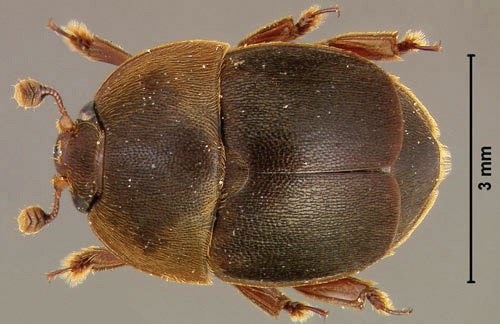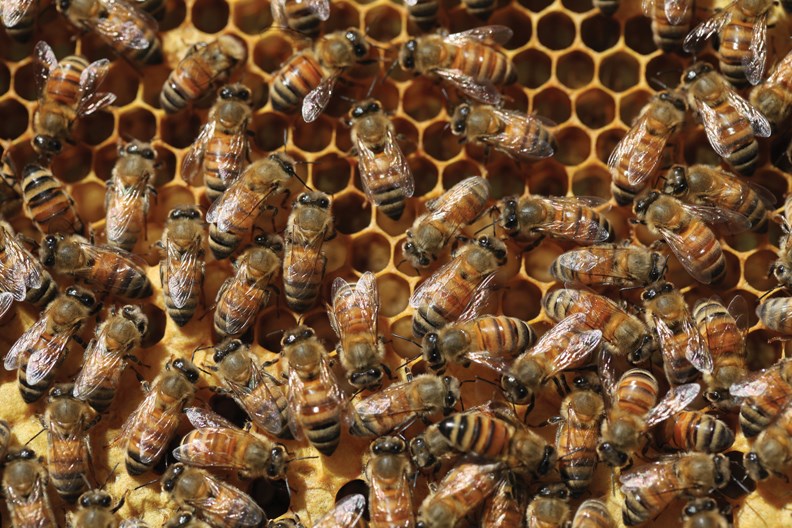Sunshine Coast Bee-keepers Association president Sally Burke is warning beekeepers about a potential threat to their hives.
The hive beetle isn’t a new threat in North America – it’s been causing damage around the U.S. since the mid-1990s, specifically in Florida and Hawaii. But it was recently discovered north of the border in Ontario and, even closer to home, in Abbotsford.
“The first recommendation I would make is – if at all possible – buy bees locally,” Burke said. “And second of all, if you’re going to transport bees over here from the Fraser Valley or the Lower Mainland, to have them inspected by the B.C. apiary inspector prior to transporting them.”
The hive beetle hasn’t made it to the Sunshine Coast, but it has been known to hitch a ride with bees being transported around the U.S.
“It hit really hard for the commercial beekeepers because they’re transported thousands of miles,” Burke said. “They go to the almonds [in California], then they go to Minnesota, then they go to South Carolina, so you take all these hive pests and you move them all around the country.”
Burke explained that the hard-cased beetle has adapted itself very well to the inside of the hive.

“[The beetle] can pull all its appendages in, and then it’s got a hard case around it so the bee has no way of stinging it,” Burke said. “It invades the hive and goes underneath what is called the capped brood and lays eggs.”
The cells in beehives are six sided, and once the beetle gets into a cell it can breach six others and insert its larvae inside them. The larvae then devour anything sweet they come into contact with.
Attempts at quarantining infected hives have been made in the U.S., but Burke said the effectiveness of a quarantine is limited since the larvae can travel quite a ways underground and the full-grown beetles can fly.
The discovery of the beetle in Abbotsford has many concerned over the effects this could have on B.C.’s multi-million-dollar blueberry industry since bees are necessary for pollination.
There is some good news for the Coast. The hive beetle lives in dry, sandy ground which is more common in the B.C. Interior. But Burke is still asking local beekeepers to remain cautious about importing bees.
There are 35 members in the Sunshine Coast Beekeepers Association.



